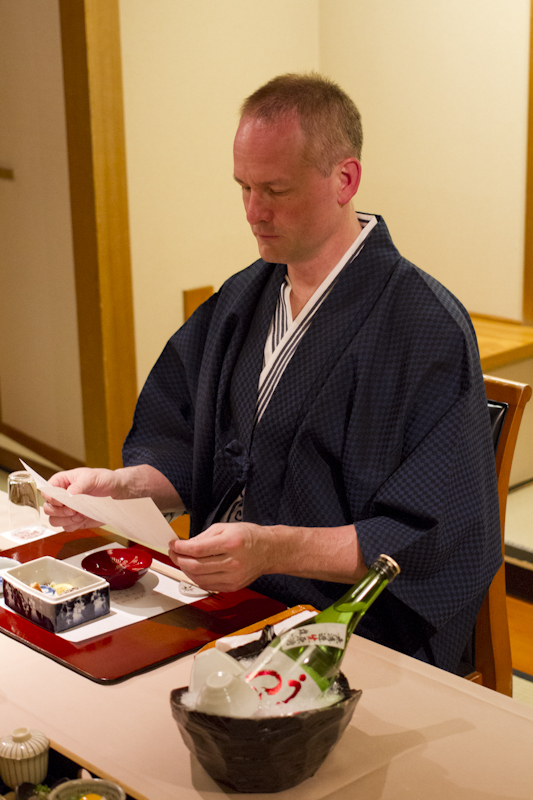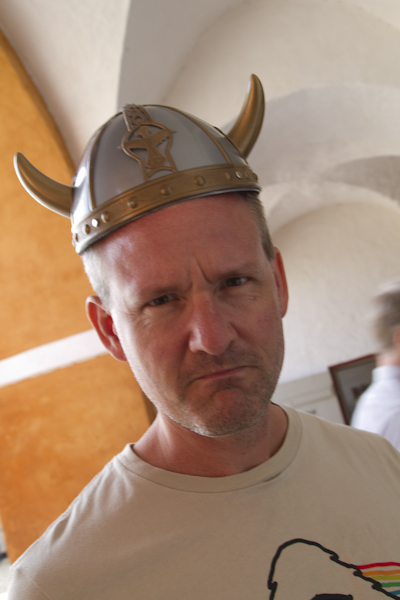Of all the bizarre transgressions used to shame social media foes in our increasingly hysterical society, the concept of ‘cultural appropriation’ is surely the most confused.
The idea that you can somehow steal (for that is what ‘appropriate’ means in this context) someone’s culture is silly even by academic standards, and that’s saying something.
It’s how culture works.
I mean this in a technical sense. Bear with me for a moment as I wax anthropological, calling up memories of my long gone university days.
‘Culture’ is a sort of tool kit. A complex of shared behaviours, values, norms and beliefs which are passed down to us through learning, immersion and imitation, and that ultimately enables our survival.
We absorb our culture like sponges as children. And we undergo various rites of passage which integrate us into our particular role as a full member of our community.
I’m not just talking about tribal initiation rites here. Rites of passage in Western society include coming of age ceremonies like graduation, marriage, or an old-fashioned debutante’s ball. Religious rites of passage you might be familiar with include first communion or confirmation for Catholics, and bar and bat mitzvah for Jews. Even going through military boot camp is a rite of passage from civilian to military life.
That’s a fascinating topic to dig into, but we’re veering slightly off track. Let’s get back to this bizarre notion of ‘stealing’ someone’s culture.
A culture is a sort of operating system for humans. You can think of your biological heritage — your genes, your temperament, etc — as the hardware you’ve got to work with, and culture as the software package you’ve inherited as a member of your particular group. It’s a very loose analogy, but you get the idea.
Some cultures are more successful than others at surviving in a broad range of environments. Some are best suited to a particular time or place, while others seem to thrive more broadly. Some are closed and rigid, and others are more open to change.
What’s that? Did I say ‘change’?
Absolutely. Cultures change for several reasons. New challenges, like a changing climate, receding Ice Age glaciers, or the loss of a particular food source might force change or extinction.
Old ways of living in that environment may no longer fit current conditions, and so the cultural toolkit associated with those vanished elements may simply fade away.
Cultures also change through interaction with other cultures.
Trade spreads ideas as well as objects. You can see this at work in stone age tool technology. The earliest example of deliberately made stone toolkits we have dates back at least 2.6 million years. This Oldowan toolkit (so called because the first specimens were found at Olduvai Gorge in Tanzania) include things like hammerstones, sharp stone flakes and stone cores.
That was good enough for our ancestors for hundreds of thousands of years, and then something changed.
Somewhere around 200,000 years ago, a completely new toolkit shows up. These so-called Acheulean tools were much more sophisticated. The same sort of objects you’d see in the Oldowan toolkit were worked using bone, antler or wood to flake and reshape stone cores in precise ways, which gave sharper cutting edges, as well as bifacial tools (tools with a cutting edge on both sides), among other things.
This new toolkit spread very quickly throughout Africa, the near East and Europe as groups migrated, traded, and exchanged ideas with other communities.
Someone had to think up that new way of making stone tools in the first place. Perhaps several people thought it up around the same time. But it spread as cultures interacted with each other and clashed.
“Hold up there, Murd!” you might be thinking. “Those cave-dwelling bastards were guilty of cultural appropriation!”
By our increasingly bizarre standards, yes.
Cultures learn from each other. That’s how cultures evolve, and that’s how humanity has survived and thrived and spread across the globe.
I realize this may send woke grievance archeologists screaming into their safe spaces. Perhaps they’d be better off questioning the smoke and mirrors they were taught by shameless professors who use prose nonsense generators to carve out a tenured career in the increasingly hollow halls of academia.
Like it or not, it’s true anyway.
Cultures shift and change through exchange with other cultures, and travelers do, too. Anyone who’s done a long journey in a foreign culture can relate to this.
My first real journey was a revelation in that regard. I came back from months in Central America with a very different view of my own culture. People in Ottawa seemed so cold compared to Latin Americans, and so rushed. My society felt far too orderly, too. Beholden to rules that rubbed off some of the humanity I’d seen in distant corners of the isthmus.
Travelling in Central America caused me to take a fresh look at my own culture with ‘outside eyes’, and mostly what I saw were its flaws.
Long term residence in other cultures taught me to appreciate the other side of that equation: the things my culture does well. For example, Canadians are entrepreneurial people. Not as aggressive as our American neighbours, but far closer to their dynamism than to the stagnancy I see in German workplaces, where turgid bureaucracy bogs down even the simplest process in thick volumes of pointless rules.
Traveling and living abroad have taught me new sets of skills, new customs and new habits that I’ll take back to my own country. And perhaps I’ll even end up passing some of them on to my friends and family, too.
Unfortunately, in our increasingly neurotic society, this is considered a form of racism, or colonialism, or some other fashionable -ism, rather than a natural human process.
During my years in Japan, I made miso soup and rice in my tiny apartment. That was my daily staple food. Was I adapting to the local culture like any good traveler or any good guest? Adopting the norms and day to day life of my hosts, not just because their food is delicious and healthy, but also because that culture might have something to teach me?
Or was I committing the sin of ‘cultural appropriation’ — or worse yet, ‘colonizing’ the tiny space I lived in, polluting it with my arrogant Western ways?
Should I instead have ‘stayed in my lane’, as they say today, locked inside the strict boundaries of my culture of origin? Should I have lived on Canadian food in the far western suburbs of Tokyo? What if I couldn’t find butter tarts and nanaimo bars? What then?
And what of those foreign girls I saw wandering down the street at summer festivals, dressed in yukata, a beautifully patterned light cotton kimono? Were they guilty of ‘cultural appropriation’? Or were they simply doing as the Japanese do, and getting into the spirit of the festival?
They certainly weren’t offending everyone around them. On the contrary, festival goers were pleased to see visitors so enthusiastically participating in their traditions.
Dressing up in the paraphernalia of someone’s culture in order to mock them is something different. Back in my day, that was seen as ‘being an asshole’.
Celebrating someone else’s culture, participating in it, learning from it, and maybe even bringing a part of that cultural toolkit into your own life is a form of exchange, and a form of high praise.
Cross-cultural curiosity has also inspired enduring works of art. Star Wars, the film that shaped my childhood (and that possibly planted the seeds of my interest in desert landscapes) took inspiration from Japanese films, most notably Akira Kurosawa’s The Hidden Fortress.
Kurosawa took inspiration from Shakespeare, reinterpreting Macbeth and King Lear in Warring States-era Japan (the films are Throne of Blood and Ran, respectively). He also played on American Westerns in the same way. Seven Samurai is the The Magnificent Seven set in feudal Japan.
American Westerns took inspiration from Kurosawa, too, transforming Yojimbo into Clint Eastwood’s A Fistful of Dollars.
These are great films — and surely guilty of ‘cultural appropriation’ by the standards of today’s moral puritans.
Music is much richer for cultural interaction, too.
We wouldn’t have rock ’n roll if black American musical traditions like gospel, blues, R&B and boogie woogie hadn’t met and commingled with country music to create a bewildering variety of sub genres, which have gone on to influence and be influenced by other world music traditions.
The American linguist John McWhorter has written on this with regard to music and language, arguing that the idea of ‘theft’ is misleading when applied to something like culture, which is not a limited resource. On the contrary, ‘blending’ and ‘borrowing’ is how languages evolve.
What would The Beatles have said to someone who told them, “Put down that sitar! You can’t try other people’s instruments!”
“You can’t try on other people’s hats” is just as silly.
In an ugly, contradictory world like that, a high school kid from Utah is mobbed online for wearing a Chinese-style dress to her prom, but global leaders get a free pass when Xi Jinping kits them out in Chinese-style attire at a China-hosted APEC summit.
Could we please drop this nonsense about ‘cultural appropriation’?
It’s an attempt to reduce all interactions between cultures to the usual power hierarchies of dominance and oppression that so obsess leftist academics.
All you’re doing when you throw around that accusation is exposing your own strange determination to shove people into an either/or ‘victim’ or ‘victimizer’ worldview, and sticking a deliberate spoke in someone else’s curiosity about the world.
Why not learn from one another and celebrate one another’s unique heritage instead?





Thanks Ryan
Couldn’t agree more!
Glad you enjoyed it Guy. So much of this ‘activist’ new direction in our culture is pointlessly divisive — or perhaps that is the point. It seems like we’ve regressed 50 years since I was a kid in small town Ontario.
Hello, Ryan: Yet another delightful but thoughtful stick-in-the-eye to the people in present “first world” society (particularly academia) who believe that they are the avatars of existence as living, thinking, reasoning, rational and thriving beings co-existing on this planet. Were it left to them, we would become even more culturally close-minded and insular than we appear now.
The years of travel-and-adventure (and the accretion of wonderful experiences and knowledge) are fading into the mist and only books and films bring them into view for recent generations. Virtual living is supplanting real-world cultural exposure and we are becoming the poorer (and more ill-informed) for it. Politicians, academics and their acolytes have hammered away at anyone daring to shift their narrow-minded perspectives to a greater and grander view and thereby learning how to truly live in and appreciate the cultural cornucopia that lies “out there” – rather than becoming citizens of the world, they would prefer that we maintain our tribalism and stay within the strictures of “our own kind”. History, society, civilization would never have progressed without our exploration and oftentimes immersion into other cultures. How shallow an existence to lead!
Your ruminations are very much appreciated, Ryan – you live Socrates’ maxim: “I am not an Athenian or a Greek. I am a citizen of the world.”
Thank you Bradley. It feels like we’ve regressed 50 years with this narcissistic fixation on one’s ‘identity’, and on superficial characteristics like skin colour being the most important thing about a person, so important that it shapes how you see the world more fundamentally than anything else (but only if you see it in accordance with the current political orthodoxy — those who disagree are considered misled at best, and ‘traitors’ at worst).
What happened to valuing the content of a person’s character over how they happen to look? The current track we’re being forced down is so pointlessly divisive — or perhaps that is the point. Travel was an antidote to insular tribal thinking. Spending time among people who are very different to us, sharing a meal and trying to understand their culture, breaks down those blinders. It’s difficult to maintain a resentful ideology when you experience the common humanity of the person sitting across from you.
Cultural appropriation doesn’t mean that we can’t share from each other’s cultures and learn from them. You completely misunderstand the term. When we speak of cultural appropriation, we speak of people borrowing ideas from other cultures and then claiming it as theirs or making money off it without giving credit to the people from which it was borrowed from. The push against cultural appropriation in recent years started from celebrities taking aspects of African culture, or Black American culture and turning it into business ideas and making money from it…from those same people borrowing ideas from other cultures and then media giants portraying it like they came up with something new and unique…or saying that they popularized something that has been inherent in certain cultures and a way of life for hundreds of years and even by millions of people within those cultures today. This was why people started to push against it. This was why the term became popularized, and a similar term…culture vulture.
It is even more insulting to groups of people who have constantly been treated horribly by the society they live in, have had to and still have to endure racism and the implications of racism of the past, have had huge aspects of their culture stolen from them by Europeans who invaded their country, stole their art, parts of their way of life, and even their people, and have built their society on the back of others but will be the same people to complain when these people are trying to come to these countries to create a better life for themselves (whether as refugees or as immigrants)
There is nothing wrong with, and it is even encouraged to learn from other cultures, to share cultures, and to grow…but there is something inherently wrong with taking credit and monetizing something you did not create but then making it seem like it was yours. This article reads incredibly tone deaf, like you didn’t even bother to understand why the people complaining about it are complaining about it but in your self righteousness, just assumed you knew and then went on to write something about you have never experienced.
Thank you for your comment. I’m well aware of the definition of cultural appropriation, and I have read up on it. Where I think we differ is that I don’t see the world as a “victim / oppressor” power hierarchy.
I realize that’s the currently fashionable view, but there’s much more to life than being relegated to either ‘victim’ status (which removes all agency, or places it in the hands of reformed ‘aggressors’, ie. ‘allies’ who swoop in from their position of ‘privilege’ to save the oppressed) or being relegated to ‘oppressor’ who is supposed to feel some vague sense of post-colonial guilt over the terrible deeds of someone who had the same skin colour or nationality hundreds of years ago.
If you’re not with us — an active anti-oppressor as per the activist’s own definition — then you’re against us, and therefore an oppressor. It’s a one-dimensional way to understand the world, and can only lead to bitter resentment.
We seem to agree that a culture is a set of tools, and that we can and should learn from one another’s ways of navigating life. Your concern over who has the right to monetize something seems to reflect opposition to capitalism more than anything else.
It’s like someone takes the book you wrote, changes almost nothing about it, then puts their name on it and sells it as theirs. Would you be saying, wow, thank you for sharing my ideas? Or would you be angry? It would be different if someone read your work and said I would really inspired by the book written by Ryan Murdock and I decided to use some aspects of what he mentioned as well as add some of my input. You would be much happier if someone did that but okay, continue to talk about something you don’t understand. It’s quite surprising and disappointing that you are so well traveled but don’t even know the basics of trying to udnerstand where others are coming from and why they have their grievances before writing your opinion on something you don’t even know the definition of nor have you read anything about it, nor have you ever and will probably never experience
No, that would be copyright violation. There are clear laws against it, as there are around theft of intellectual property.
Should we then copyright hairstyles, clothing styles, stories, musical beats? If so, where does it stop?
And who has the right to use these intellectual properties? Must someone be fully Japanese to wear a kimono? What if one parent is foreign? Should we go back to the American slave laws and start counting drops of blood to determine who belongs to which cultural category?
If hairstyles or clothing styles are deemed to belong to a particular culture, then should they be paid each time one is used? If so, who gets paid? Should someone’s permission be asked? If so, whose? And why that person? Why not every member of that however-defined group?
That whole line of thinking is a regression that seeks to divide people rather than unite us as global citizens who learn and share from one another, and celebrate difference rather than attempt to control it.
It is not remotely the same; a book, a work of art, a song, or anything similar to this, is a fixed thing; it exists as a snapshot in time, a moment, a collective of thoughts and ideas presented to the world in one brief slice, copying this as your own is wrong. As the initial response stated, there are clear laws about this.
Though I accept these laws are not always properly applied, and that through the ages there have been many such things like literature, art, scientific ideas and so forth appropriated by those who would seek to benefit from them but have made no effort towards the creation of them, this is not generally a case of cultural appropriation, it usually a case of an individual looking to gain an advantage over their peers, it is usually about power and greed, this is, unfortunately, human nature, all cultures have individuals and groups who steal from their colleagues, friends, family, culture and society and who cost us all.
The point you appear to have missed entirely is that culture and society are fluid; they can and do move from one person, one group, one place, one nation, to another; it mixes, like air, like water. Eventually, it blends, some things are lost, and others are gained, and it becomes something new. This results (or at least it should) in a more prosperous and more profound culture for all those willing to embrace it; this is how culture and society are built, how it endures, we learn from each other, we take heed of mistakes made, we incorporate the best ideas and ideals.
You cannot truly contain or control this spread, apart from in small pockets and space and for a short time, no more than you can truly contain water or air, or any other ‘free’ element, yes these things can sometimes be harnessed, but if the skies open and cause floods, we have no control over this, we have no power to avert tidal waves, or stop the spread of volcanic ash through the air.
This ‘control’ is an illusion that most folks have bought into, and one that subdues us, all we really have any control over is our own behaviours and attitudes and a very small segment of the world we live in on any particular day.
What holds us all back is the inability to grasp things have already changed, we have already hit the cultural precipice, and there is no longer any space or time for nations, for races; we are one race, one nation, and that is we are part of the human race and citizens of earth, we need to realise/relearn, interdependence is the only way to succeed and survive in the long run, which oddly enough, will require the mixing of cultural differences and accepting we can be part of the same world despite having different backgrounds and that we can share and utilise those differences.
The sooner we start grasping this we can start taking care of our planet and each other properly, instead of demanding the world and everyone else in it owes us something, thinking others are our enemy because they disagree with us and causing problems because we have this destructive attitude of entitlement and need to prove ourselves right all the time and getting offended at everything we do not agree with whilst blaming other folks for the same thing you do yourself.
The alternative will likely be disastrous for humanity, we must fully grasp that the earth does not require us for its existence and will go on for a few billion years more without us and all else that dwells on this rock will be just fine without us and it is that which should upset us, that which should motivate us towards generally behaving better in so many aspects of our existence.
it matters not if one disagrees or is offended, it matters not how many objections we make or how many examples of why things can’t work this way or that way. Stop blaming each other, start taking responsibility for ourselves, and grasp, the universe does not require our belief, approval or input. What will be will be and it will take its own path, and our destiny is in our own hands, we can choose to step into a better world, together, or be pushed into the fire alone screaming it was someone else’s fault.
I agree with you whole heartedly. I truly believe cultural appropriation is being used as an excuse to separate us even further than we already are.
I think you’re missing the profit motive element, which is necessary to make it somehow a “crime.” The idea being that a member of power class frolicks in the proverbial slums, copies their fashions, and sells them for profit. Whose fault is it, though, that those fashions only become marketable when a power class member dons them? It’s not as if there is s lost profit that would otherwise have accrued to the unmarketable group. Personally I’d rather have useful vectors spread my aesthetic even if I don’t profit from it, than no influence at all.
Thank you for your comment Lilia. What of the teenage girl in Utah who wore a Chinese dress to her prom and was subjected to a social media witch hunt? Or the overblown uproar over Halloween costumes? I fail to see any profit motive in such cases. The power being exerted is that of a small but hysterically loud mob weaponizing social media for its own moral aggrandizement.